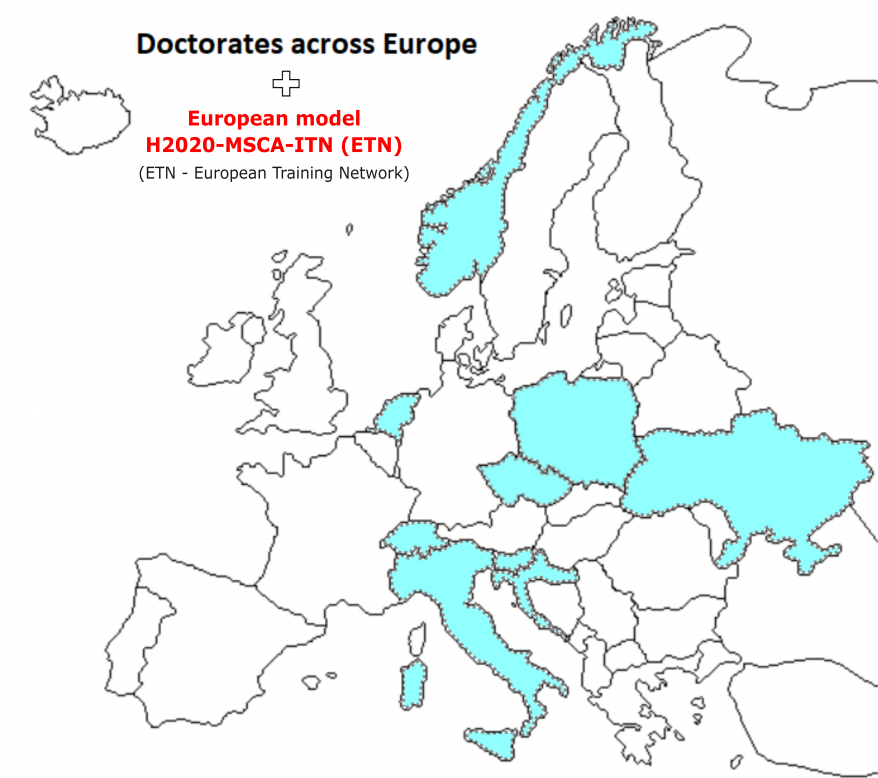What are the surveys about?
«Doctorates across Europe» is an ongoing project led by the Eurodoc Doctoral Training Working Group (DTWG) since the beginning of 2018. The survey is intended for Eurodoc members, our national associations (NAs), and other participants in our DTWG to provide a general overview on how doctorates are organised at a national level in each country. The survey takes the form of a questionnaire with open questions divided into three main sections: 1) General information and application procedure, 2) Progression, and 3) Defence procedure. From DTWG, Olga Shtyka, is responsible for this task and is in contact with our NAs to help them fill in the survey.
Why are we doing the surveys?
One of the current Eurodoc annual goals, accepted at the Annual General Meeting (AGM) 2017, is to «monitor the structure and quality of doctoral training». Doctoral training programmes vary not only across countries in Europe, but also across institutions, faculties, departments, and disciplines. At a European level, it is not easy to to distinguish the biggest differences for each country because there is no deeper documentation available on this.
As an example, in some countries during the doctoral training process, there is an obligation to pass courses or exams on specific research-related topics. In other countries, it is sufficient to work on the doctoral thesis without teaching or other activities such as supervising bachelor and master students. Training in transferable skills is also not provided in all doctoral programmes. This is accordance with the European Commission study form 2017 (MORE3, see page 14), which highlighted that only 33% of doctoral candidates in the European Union have the opportunity to attend transferable skills training as part of their studies. There are differences also in the status of doctoral candidates: they are considered students in some countries, employees in other countries, and a combination of both in yet other countries. The status of doctoral candidates is important because it is also connected with social benefits (such as health insurance, pension, and maternity leave etc.). There is furthermore a noticeable difference in the incomes of doctoral candidates depending on their doctoral system and the requirements and procedure for the doctoral defence.
Which doctoral models have been surveyed?
Until now, we have collected a description of the doctoral programme from nine countries: Croatia, Czech Republic, Italy, Netherlands, Norway, Poland, Slovenia, Switzerland, and Ukraine. Three more countries are in preparation by our NAs: Azerbaijan, Portugal, and Spain. And five further NAs have committed to surveying their countries: Denmark, Finland, France, Germany, and Hungary.
The information collected via these surveys can be compared with the requirements of the European Training Networks (ETNs). This is one mode of the Innovative Training Networks (ITNs), from the Marie Skłodowska-Curie Actions (MSCA) under the Horizon 2020 programme, where structured research and training programmes are centred around the Principles for Innovative Doctoral Training by the European Commission in 2011. The ITNs are one of the main European doctoral training programmes, putting a special emphasis on non-academic sector participation and the innovation dimension. ITNs support the career development and training of early-career researchers with a focus on innovation skills in all scientific disciplines through interdisciplinary, international, and intersectoral mobility in order to maximise employability.
We hope that these preliminary surveys will be useful for all actors interested in doctorates across Europe. In the future, DTWG aims to monitor European doctoral systems in a more comprehensive manner in order to better understand the landscape of doctorates in each country and specific doctoral training programmes.
Eva Hnatkova,
Vice-president of EURODOC,
Former coordinator of the EURODOC Doctoral Training Working Group 2016-2018

